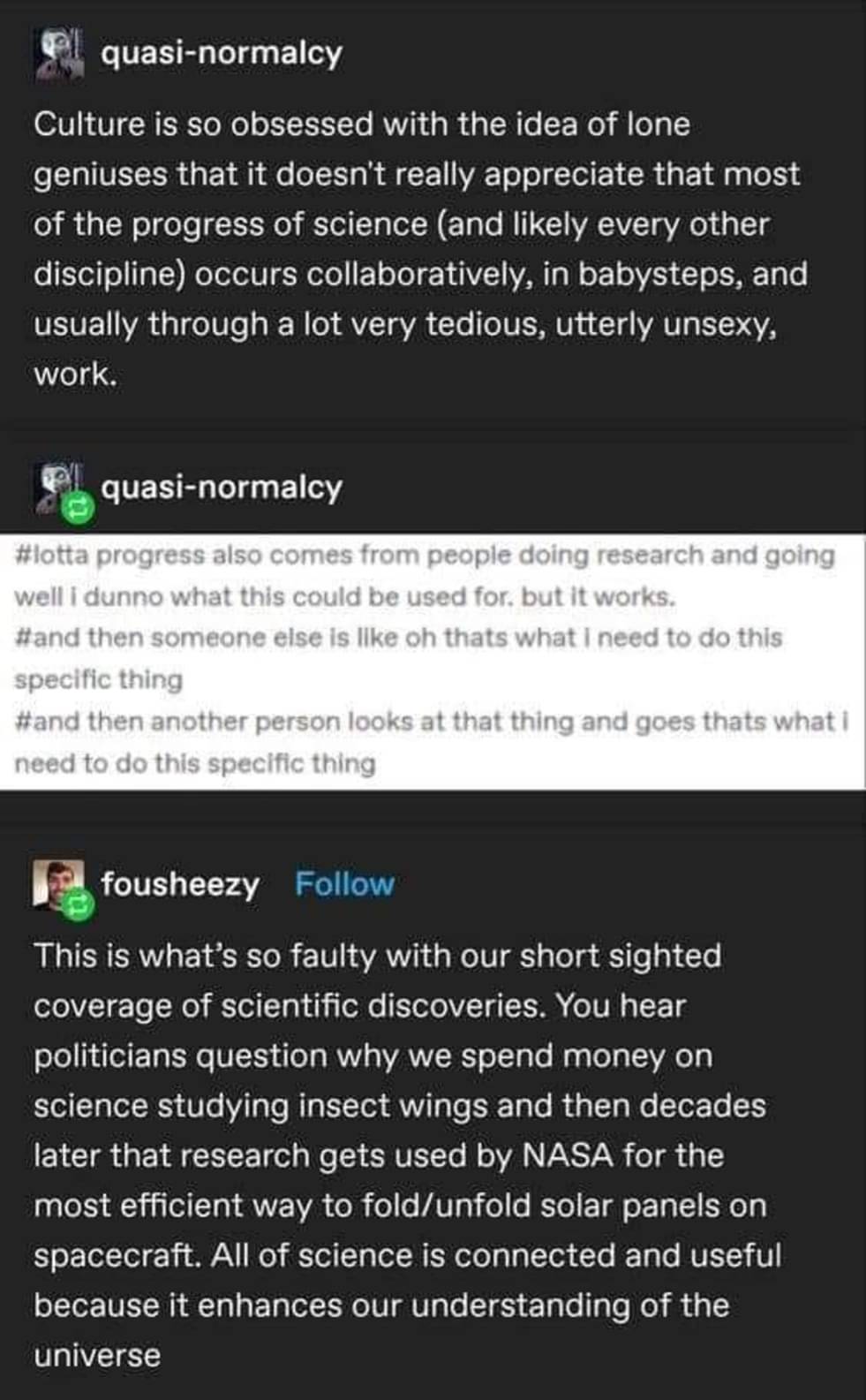this post was submitted on 03 Jul 2024
1190 points (99.2% liked)
Science Memes
11086 readers
2090 users here now
Welcome to c/science_memes @ Mander.xyz!
A place for majestic STEMLORD peacocking, as well as memes about the realities of working in a lab.

Rules
- Don't throw mud. Behave like an intellectual and remember the human.
- Keep it rooted (on topic).
- No spam.
- Infographics welcome, get schooled.
This is a science community. We use the Dawkins definition of meme.
Research Committee
Other Mander Communities
Science and Research
Biology and Life Sciences
- [email protected]
- [email protected]
- [email protected]
- [email protected]
- [email protected]
- [email protected]
- [email protected]
- [email protected]
- [email protected]
- [email protected]
- [email protected]
- [email protected]
- [email protected]
- [email protected]
- [email protected]
- [email protected]
- [email protected]
- [email protected]
- [email protected]
- [email protected]
- [email protected]
- [email protected]
- [email protected]
- [email protected]
- !reptiles and [email protected]
Physical Sciences
- [email protected]
- [email protected]
- [email protected]
- [email protected]
- [email protected]
- [email protected]
- [email protected]
- [email protected]
- [email protected]
Humanities and Social Sciences
Practical and Applied Sciences
- !exercise-and [email protected]
- [email protected]
- !self [email protected]
- [email protected]
- [email protected]
- [email protected]
Memes
Miscellaneous
founded 2 years ago
MODERATORS
you are viewing a single comment's thread
view the rest of the comments
view the rest of the comments

For example, carbon dating took discoveries including counting tree rings to determine a tree's age, the origins of all the radiation on Earth -- spoiler: it was the Earth itself, but also cosmic rays which was the important bit, nuclear half-lives and creating a chart of specifically useful half-lives for historical dating, the discovery of a rare isotope of carbon which can only be made by cosmic rays (carbon-14) as a near perfect clock for human timescales, how to build a sensor that can read faint carbon-14 radioactivity while filtering out all the radioactive noise from the environment, making another chart of expected radioactive readings based on geographical location including the depths of the ocean, and of course not to mention all of the archeological data used to calibrate all of the charts and devices used in the process.